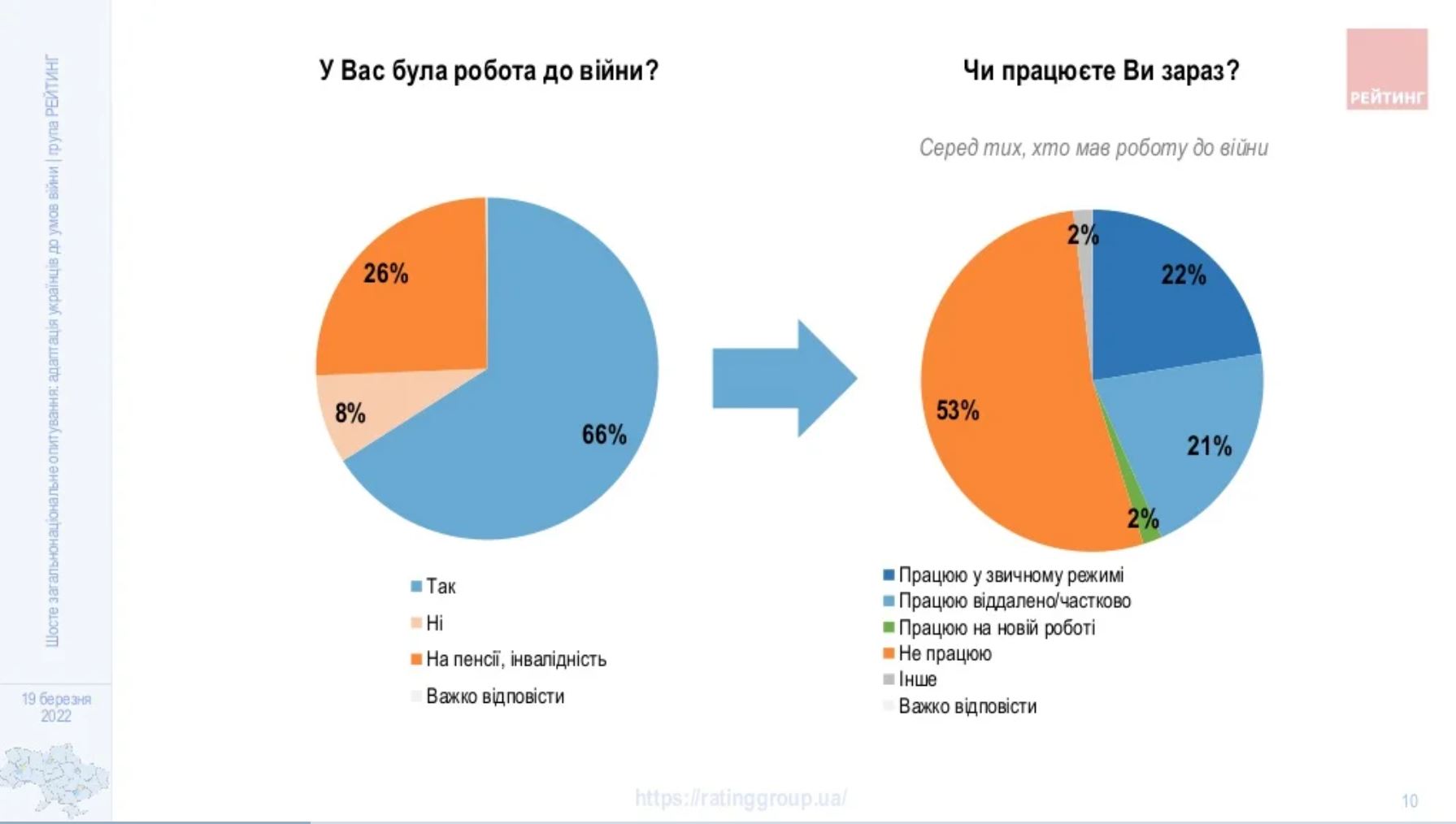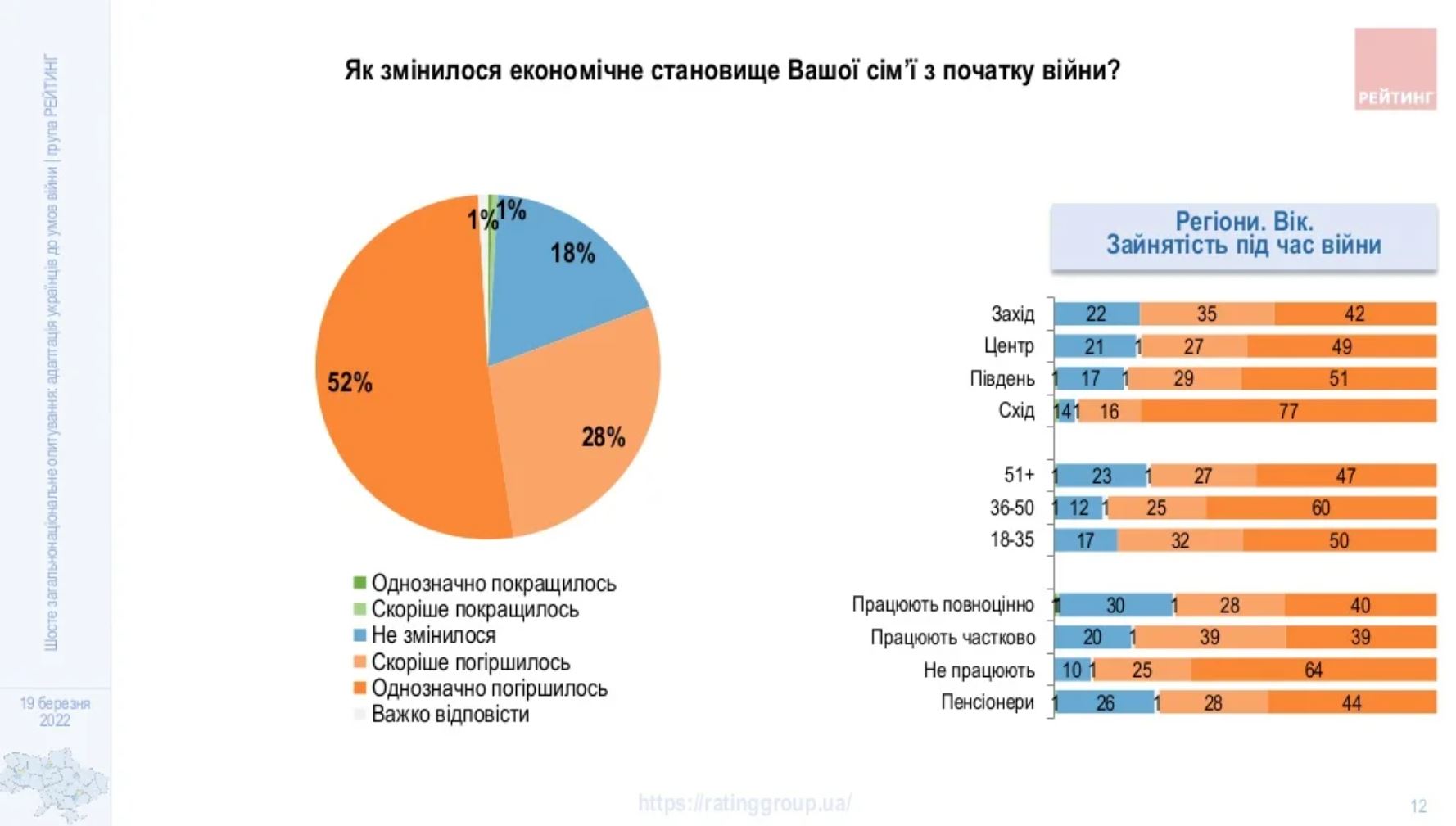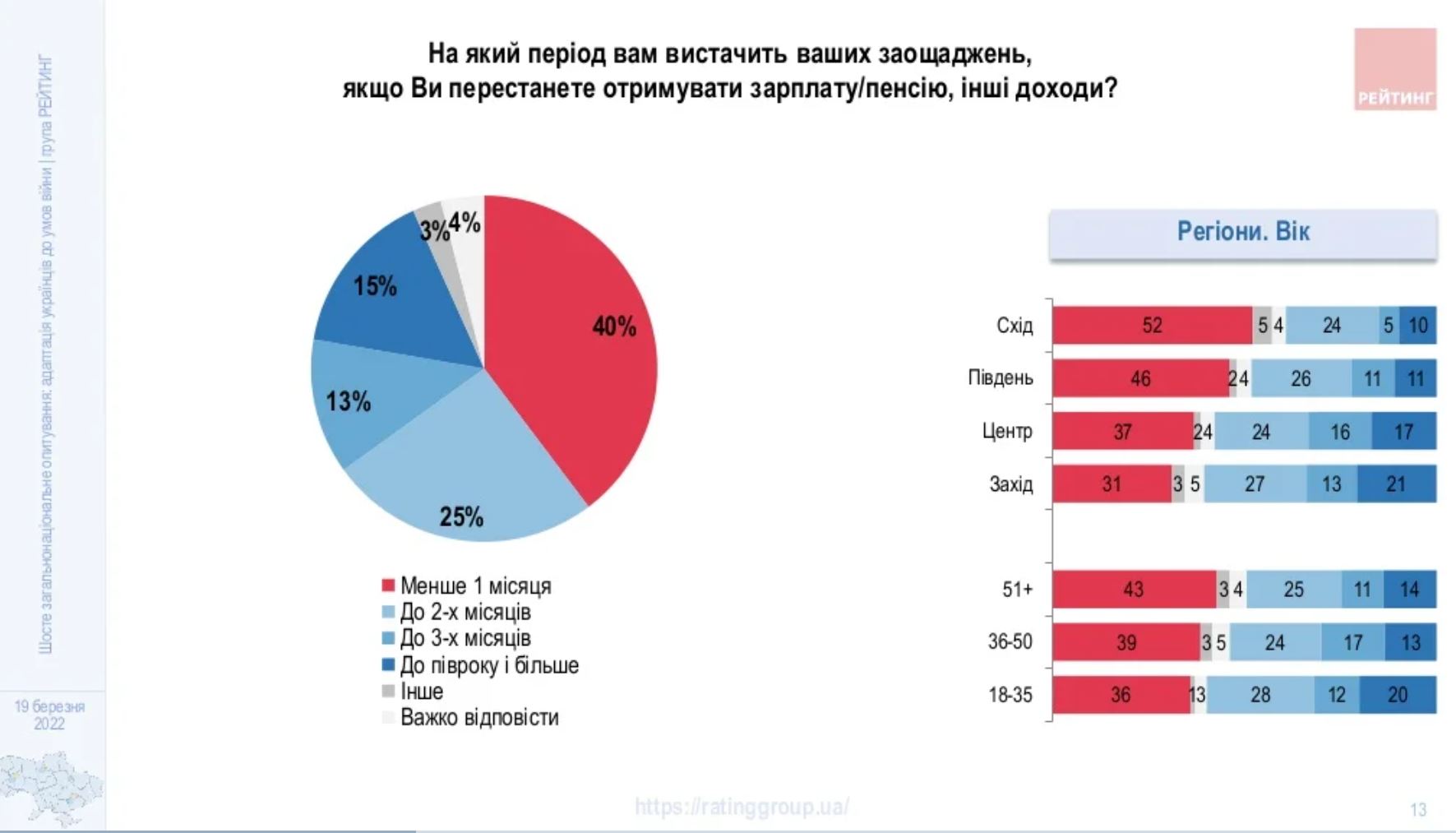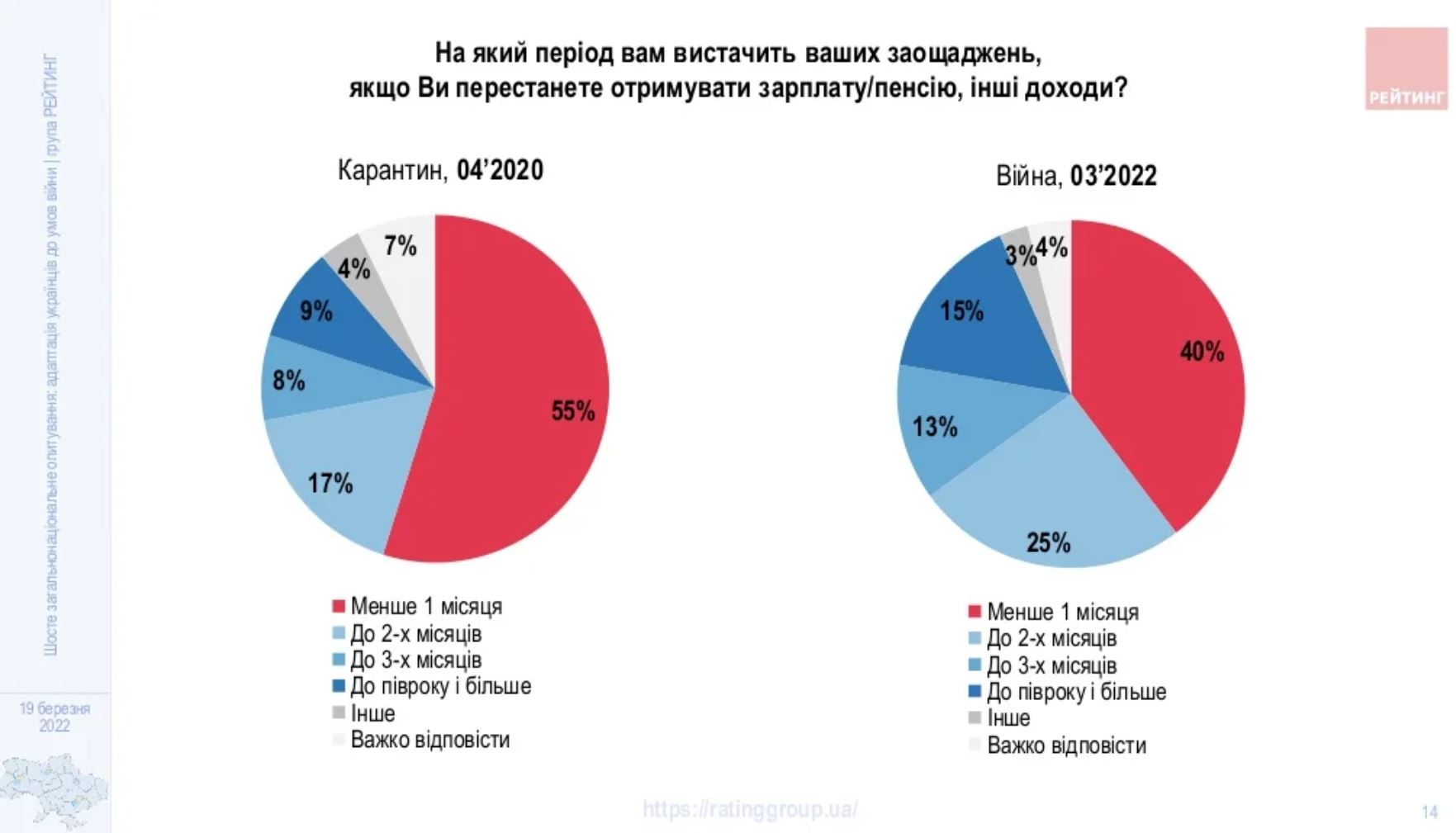Most Ukrainians who worked before the war do not work now.

Among Ukrainians who had jobs before the full-scale invasion of Russia , 53% do not work now, according to a poll by the sociological group “Rating”. 22% of citizens work normally, 21% work remotely, and 2% find a new job.
Sociologists explained that this is an indicator not only of economic problems, but also of socio-psychological ones. After all, work is not only the economy, it is a habitual way of life, communication and interaction with others, structured time, stabilizes, gives confidence, reduces anxiety and increases self-esteem. A significant proportion of citizens have lost such support and are more likely to have a higher level of maladaptation.
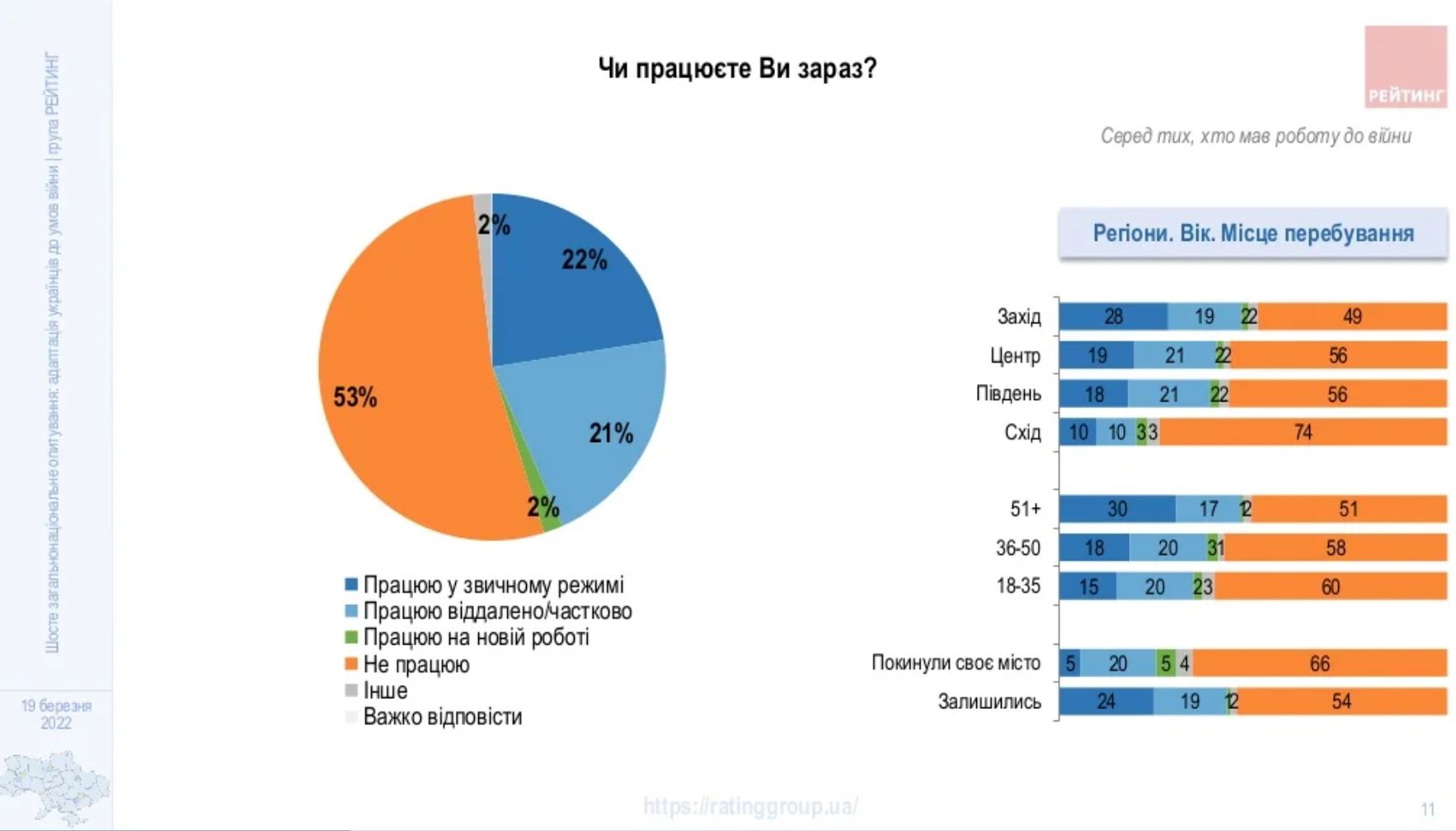
The war did not affect the economic situation of only 18% of Ukrainians. In 52% the economic situation has significantly deteriorated, in 28% it has deteriorated rather.
“Income” covers “basic human needs, gives a sense of security and reduces anxiety about the uncertain future,” said sociologists.
According to the survey, 40% of respondents believe that their savings will be enough for only a month. However, the coronavirus pandemic has taught Ukrainians to save and the percentage of those who have increased their financial security during the crisis has increased (during the first quarantine (04.2020) 55% believed that their savings would be enough for only a month). Therefore, given the socio-economic and psychological importance of employment, it is now very important to resume work as much as possible.
Read also: Almost all Ukrainians believe that Russia should compensate Ukraine for economic and infrastructural losses – poll
The poll was conducted on March 19, 2022 among the population of Ukraine aged 18 and older in all areas except the temporarily occupied territories of Crimea and Donbass. The sample is representative by age, sex and type of settlement. A total of 1,000 respondents were interviewed using the CATI (Computer Assisted Telephone Interviews) method. Error of representativeness of the study with a confidence level of 0.95: not more than 3.1%.

